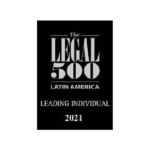LEGAL SYSTEM
1.1 Legal System
The legal system in the Dominican Republic is civil law. Its origins can be traced to the proclamation of the Constitution in 1844 that established the nation as a republican state, and the Decree No. 48, of July 4th, 1845 issued by the National Congress, which ordered Dominican courts to observe and apply the called “French Codes of the Restoration”, or the Civil, Commercial, Criminal, Civil Procedure, and Criminal Procedure codes of France at the time.
Currently, the main characteristics of the civil legal system in the country are:
- a system of rules and principles generally codified, and in which the written law is directly applied over case law; and
- a primarily legislative power that legislates and oversees in the representation of the people of the Dominican Republic, and a judicial system that interprets, but its case law, besides the decisions issued by the Constitutional Court, does not create a mandatory precedent.
The sources of law in the Dominican Republic are, as listed in order of hierarchy: the Constitution, International treaties signed by the Dominican Republic regarding human rights, binding decisions from the Constitutional Court, codes and laws, presidential decrees, and Administrative Resolutions.
Justice is administered at a national level, and jurisdiction is assigned by territory, in as many Judicial Departments and Districts as created by law.
The Judicial Branch is one of the three branches of the Dominican government. The attributions of the Judicial Branch are to administer justice free of charge, in private or public law, between individuals or legal entities, by judging and enforcing under the terms of article 149, paragraph 1 of the Constitution of the Dominican Republic.
The Judicial Branch is compounded by the Supreme Court of Justice and courts of first and second instance. Besides the Judicial Branch, the Constitutional Court and the Superior Electoral Court are constitutional autonomous institutions.























































